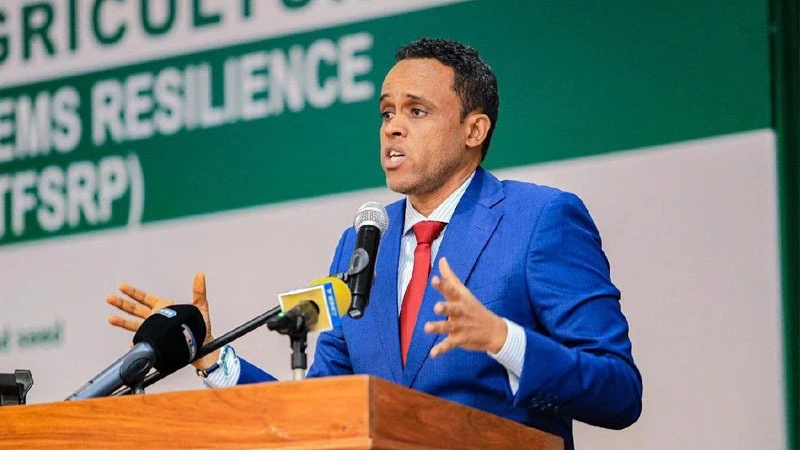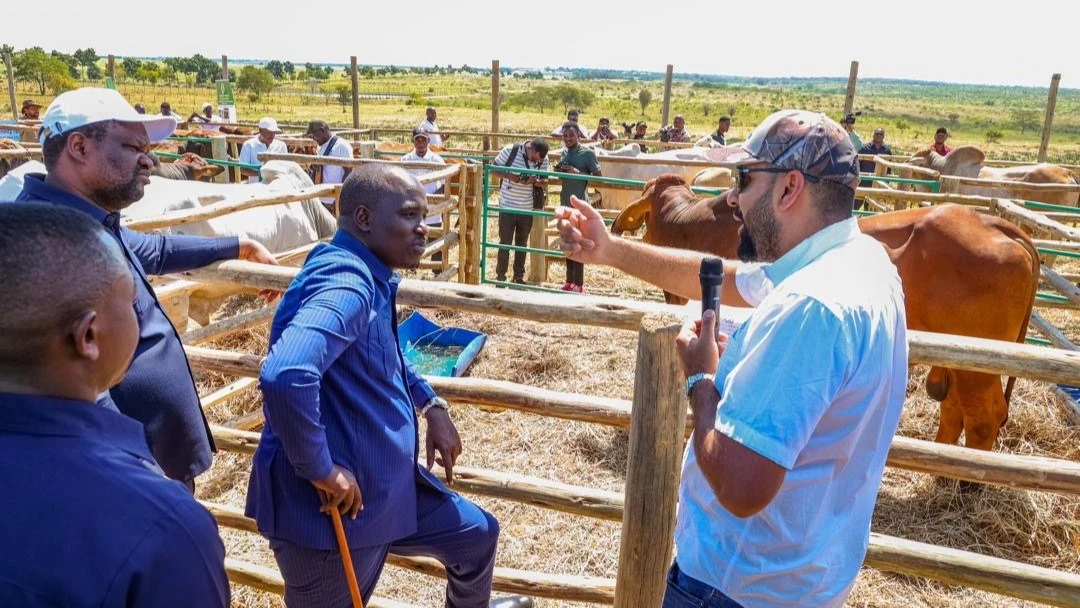‘Microfinance lending terms not helpful in farming sector’

AGRICULTURE financing policy is being reformulated to address bottlenecks in accessing capital in the agriculture sector, the government has declared.
Hussein Bashe, the sector minister, told the Tanzania food systems partnership dialogue and workshop in Dar es Salaam yesterday that discussions were at an advanced stage with relevant ministries and institutions to review the sector’s financial infrastructure.
“Currently our financial infrastructure does not finance the business concept, we want this narrative to change,” he emphasised, elaborating that the aim is to let the policy ‘twist’ what is happening currently where financing is done via the microfinance policy.
Underlining that the wider intention is to facilitate agro-sector growth and improve food security, noting that last year where the wider economy had over 25trn/- in loans only 3trn/- went to the agriculture sector.
As this is a sector which employs 80 percent of Tanzanians, the current plan is to have at least 30-percent of the loans issued in the economy to be directed to the agriculture sector, which requires “a strong agriculture financing policy which will reduce interest rates from the current 25 per cent to a single digit.”
Pointing at technical snags of the agro-sector, he said that agriculture is different from other businesses as no one can repay an agriculture loan in one or two years as it is with commercial loans.
Loan guarantee schemes being offered by the Tanzania Agriculture Development Bank (TADB) addresses lending issues generally and not specifically for agriculture financing.
Hailemariam Dessalegn, the former Ethiopian prime minister and board chairman for Alliance for a Green Revolution in Africa (AGRA), said there is need for addressing challenges facing the agriculture sector, including post-harvest losses.
“We need to have strategies to address this and one of them is to merchandise agriculture,” he said, affirming that AGRA is working with partner organisations to address the problem.
The workshop brought the partners around top priorities for accelerating food systems and climate action, seeking accelerated progress on specific public-private flagship initiatives ahead of major conferences later this year.
Scheduled conferences include the 2024 Africa Food Systems Forum (AFSF), the Sustainable Development Impact Summit, and the global climate change conference (COP 29), all of which will pursue existing initiatives on food systems, climate and environment, he said.
The conference builds momentum in policy reflection on the agriculture sector against the backdrop of the Africa Climate Summit, COP 28 and the Africa Food Systems Forum 2023 in Dar es Salaam under the theme ‘Recover, Regenerate, Act,’ to set out Africa’s solutions to the food systems crisis.
It was in this forum that the ‘Building a Better Tomorrow’ (BBT) initiative, a key programme for youth in commercial agriculture, while the meeting took stock of progress made in such initiatives, evaluating the momentum of its food system pathways.
Top officials say that Tanzania has transformed the country’s policy direction in ensuring food security is attained in the short term while building more inclusive, sustainable, nutritious and resilient food systems in the medium term. It similarly aspires to be a grain supplier for the wider African market.
Top Headlines
© 2024 IPPMEDIA.COM. ALL RIGHTS RESERVED






















